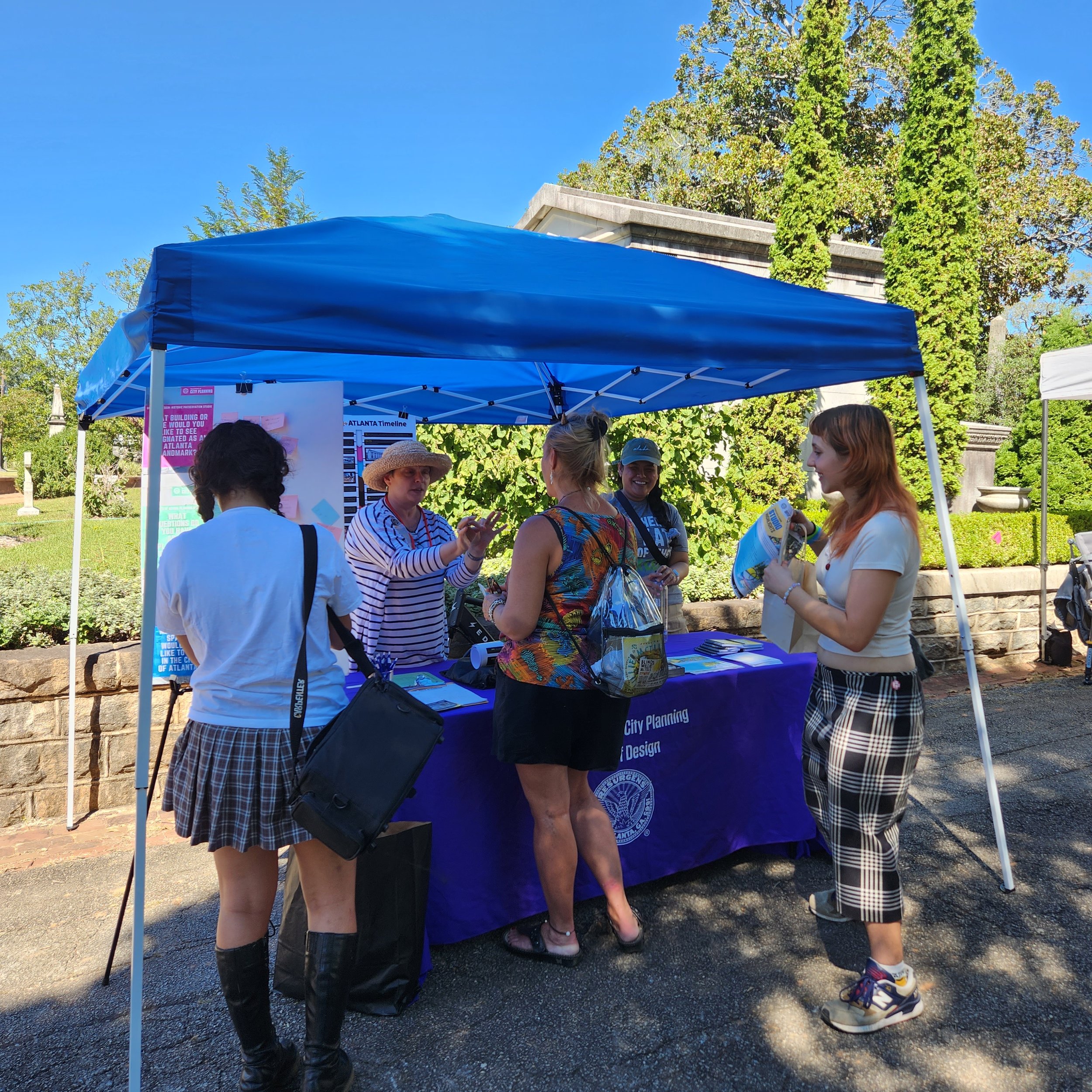ATLANTA CEMETERY NETWORK
ABOUT
The purpose of the Atlanta Cemetery Network is to revitalize the cemeteries in our city by assisting communities, groups, and individuals who have interest in preserving the history of cemeteries in Atlanta. The ACN will promote and highlight known Atlanta cemeteries and encourage residents to help us find obscured and forgotten cemeteries for revitalization.
Additionally, the ACN will create a hub for exchanging knowledge and expertise about cemeteries, including their care and management, and serve as a gathering space for a diverse group of individuals who want to learn about cemetery history and care taking. The Atlanta Cemetery Network will also focus attention and resources on cemeteries/burial grounds associated with Black Americans and Black communities (existing or gone). These cemeteries often reflect the demographic, economic, and religious trends of communities and are often the last reminders of a neighborhood or group of people. Without the preservation efforts that the ACN hopes to achieve, much of the rich history that lies within these grounds will be irretrievably lost.
CITY DESIGN CORE VALUES
All Office of Design initiatives incorporate at least one of the Atlanta City Design core values.
CEMETERY SURVEY AND CONTEXT
The ACN’s largest undertaking has been a complete survey of existing cemeteries in Atlanta. Many cemeteries are small and have suffered from neglect over time. The last comprehensive survey of cemeteries in the city was undertaken by historian Franklin Garrett in the 1930s and did not include African American cemeteries. The ACN has identified 87 cemeteries within city limits, and as of June 2023 has conducted site visits, photography, and basic surveys on 62 of these cemeteries. In addition, the ACN has been collecting archival documents to assist in understanding the contextual history and evolution of cemeteries within the city. Melissa Hamblett, an Historic Preservation graduate student and the 2022 Thurston intern for the Historic Preservation Studio, assisted greatly in the contextual research for the CAN. This research led her to develop an interest in cemetery preservation and documentation which became the subject of her thesis. HP Staff provided educational support and served on her thesis committee.
CIVIL RIGHTS SELF GUIDED CEMETERY TOUR
The Atlanta Cemetery Network visual guide for the graves of notable Civil Rights Pioneers buried at Southview and Lincoln cemeteries was created to highlight 30 individuals who helped pave the way for equity and equality in Atlanta and beyond. Visitors to the cemeteries can use the document for their self-guided tour to find each of the graves of these individuals. The Department of City Planning has plans to create and share a walking video of these graves in the near future.
SUNDAY IN THE PARK
In conjunction with the Historic Oakland Foundation, one of our community partnerships, the Office of Design hosted a booth at Sunday in the Park in September 2022. This event, which attracted Oakland’s largest public crowd to date offered an opportunity for a wide swath of Atlanta’s population to understand and ask questions about the Office of Design. Staff were on hand to discuss all the ongoing initiatives of the studios within the Office of Design.
CEMETERY HEADSTONE CLEANING
As part of Preservation Week the Historic Preservation Studio hosted a headstone cleaning event at historic South Bend Cemetery. This cemetery has been orphaned since the congregation associated with it closed. A volunteer group now manages burials and maintenance. The CAN partnered with the friends group maintaining the cemetery to help with their preservation efforts and educate the public on how to properly clean and maintain headstones.
“THE CEMETERY DETECTIVE” TALK
The ACN hosted Chattanooga blogger and cemetery historian Keith Harper who presented on the history of Southern Cemeteries and what makes them unique. Keith also shared stories about some of the most unusual cemeteries he has discovered, including cemeteries that can only be accessed by kayak due to flooding. The meeting also offered an opportunity to update the public on the progress that the CAN had made over its first three months.











